

Last week, in a powerful affirmation of the common good, commissioners in Tennessee’s Johnson County unanimously opposed the privatization of the state prison within their county’s limits. A response to fears that the state government could soon outsource management of the Northeast State Correctional Complex, the resolution reads like a checklist of what democracy and public control can provide a community.
The “no” vote was prompted by the state government’s recent exploration of outsourcing the management of state properties, including prisons, hospitals, parks and even the University of Tennessee. State officials have also been trying to manage a shortage of prison officers after introducing a controversial overtime policy statewide to cut costs.
But the Johnson County commissioners recognize that outsourcing isn’t the answer: “Any type of privatization would be detrimental to our county, citizens and staff of Northeast Correctional Complex.” They also honored public service by dedicating a day each year in recognition of the prison’s current staff.
» Read more about: Counties Say No to Privatizing Their Prisons »


A number of residents of the picturesque, alpine community of Mount Shasta, California are fed up with their big, new, imminent water hog of a neighbor, the Crystal Geyser Water Company. As Capital & Main reported earlier this year, a group of them have been calling for months for an environmental impact report (EIR) to measure the potential harm that the opening of a new local bottling plant may have on the region’s watershed. With the state in the fourth year of a historic drought, they argued that allowing a multinational corporation to extract precious California groundwater to manufacture and sell tea, soda and bottled water around the world is the height of recklessness.
On Monday, under the name of their nonprofit group, We Advocate Through Environmental Review (WATER), residents filed a complaint in Napa County Superior Court, the district in which Crystal Geyser’s corporate headquarters is located,
» Read more about: Mount Shasta Water Lawsuit: Message to a Bottler »
 If L.A.’s landlords have their way, California’s ongoing drought woes could result in many renters having to foot the bill for their water usage. Owners are nudging city leaders to study a survey released in July by the landlord group Apartment Association of Greater Los Angeles (AAGLA).
If L.A.’s landlords have their way, California’s ongoing drought woes could result in many renters having to foot the bill for their water usage. Owners are nudging city leaders to study a survey released in July by the landlord group Apartment Association of Greater Los Angeles (AAGLA).
The report claims that more than 86 percent of rental property owners in the city who pay for their tenants’ water have experienced an increase or seen no change in water usage since Governor Jerry Brown ordered mandatory restrictions in April. Landlords assert that renters have no incentive to conserve water because they aren’t paying for it, resulting in higher water costs.
Some tenant groups are crying foul, however, claiming that this proposal is little more than an attempt by landlords to use the drought to circumvent rent control laws. Los Angeles forbids owners of buildings constructed before 1979 to pass on water costs to tenants.
» Read more about: L.A. Landlords Seek to Put Tenants on the Hook for Water Bills »


If you try to play Monopoly with a two year old, you will not win.
Sure, you may be better at buying up property, building hotels and following rules about when to pass Go – good on you. But when the two year old decides he’s playing a different game, like Throw the Entire Board at the Adult, that game and its goals will absolutely trump yours.
Disruption went from Silicon Valley buzzword to cliché years ago, but it persists as an operational goal for countless tech startups and their investors. (See Judith Shulevitz’s excellent 2013 exploration of the term.)
We still see such supercharged words as reinvent, reimagine and revolutionize as investors search for the next “unicorn” – the term for a startup valued at more than $1 billion.
» Read more about: Do Unicorns Play Monopoly? Ask Uber and Amazon »
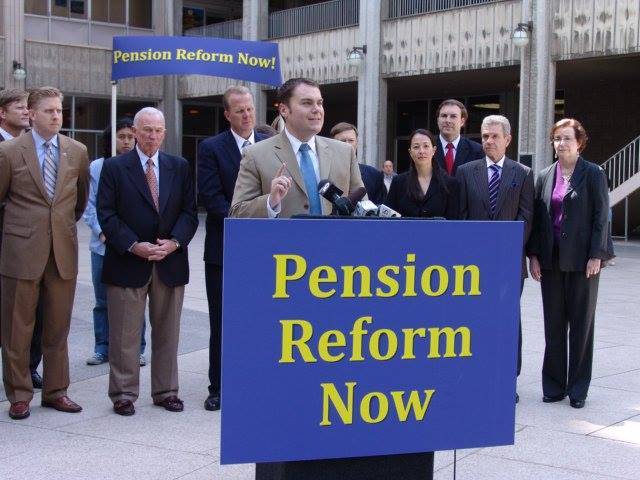
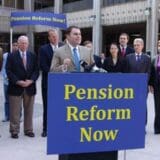
Backers of a proposed statewide ballot measure that would radically change the way wages and pensions of California’s government employees are formulated have begun an email campaign seeking pledges of support for the measure – as well as volunteers to circulate signature petitions when they become available in a few weeks.
The pension activists have 180 days from August 11, the date Attorney General Kamala D. Harris assigned a full title and ballot summary to the measure, in order to qualify it for the November, 2016 election.
Such email campaigns can help an initiative qualify for the state ballot if coupled with other efforts, Mike Madrid of Grassroots Lab, a Sacramento-based public affairs group, told Capital & Main by phone. “But if it is the only thing you are doing the chances for success are slim.”
In ballot-box politics, the bottom line is money.
» Read more about: Leaders of Pension-Cutting Ballot Proposal Look for Supporters Online »


As public officials across the country continue to manage shrinking budgets, experiments for funding public services are emerging. One new idea, the Social Impact Bond, has been advertised as a “win-win” for private investors and the public, but the reality is beginning to look a little different.
The results are in from the first SIB tried in the U.S. and it failed to meet its goals. The SIB was aimed at reducing the rate by which adolescents housed on Rikers Island returned to jail, with a goal of at least an 8.5 percent drop. Therapy was provided to inmates, but recidivism wasn’t significantly reduced.
SIBs are complex arrangements—private investors lend funding for a program and the government repays them only if certain goals are met. For the Rikers SIB, New York City was lent millions by Goldman Sachs, backed by Bloomberg Philanthropies.
Proponents of SIBs claim that,
» Read more about: Wrong Island: Why Are Privatizers Applauding Failed Prison Experiment? »
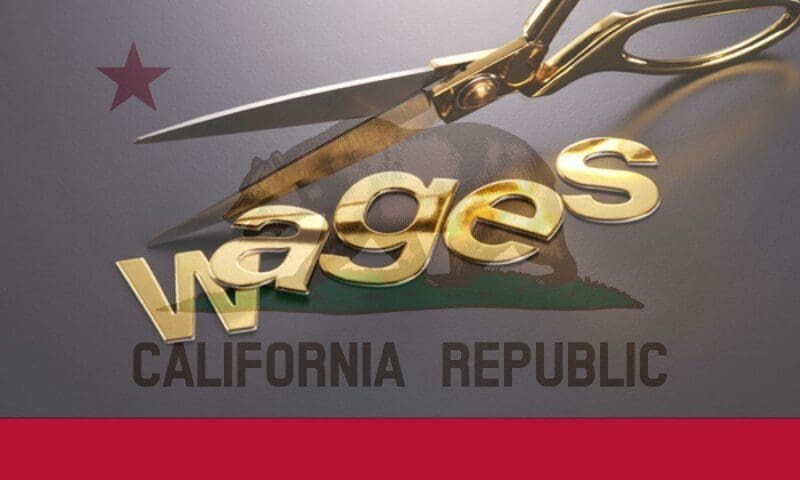
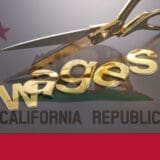
When the U.S. Census Bureau released figures identifying California as having the highest poverty rate in the nation, the news would not have shocked the 4.8 million low-wage earners at the bottom of California’s income divide. For those single workers and families that subsist paycheck to paycheck, and too often make up the difference by maxing out credit cards or taking out predatory short-term loans, life’s a precarious balancing act even when things go well.
But when unforeseen calamities strike, such as serious health emergencies or the loss of a job, hard-pressed households are left without a safety net. Unable to keep up payments, loans fall into default and too often result in crippling court-ordered garnishments that claim up to a quarter of earnings.
SB 501 quickly ran afoul of the powerful California Bankers Association and debt-buyer lobbyists.
“We see increasing numbers of these families in our legal aid services throughout the state,” the Western Center on Law and Poverty’s Jessica Bartholow told Capital &
» Read more about: Garnishing California's Future: New Bill Seeks to Curb Wage Seizures »


Here’s the good news: The percentage rate of change in global carbon emissions in 2014 was zero. It didn’t go up. That’s the first time in the record books that the world economy grew but carbon emissions didn’t. Here’s the bad news: The average global temperature has been hotter every month since February of 1985 than the 20th century average for any given month. We’re talking 360 consecutive months of warmer-than-average temperatures.
Here’s the really bad news: If we continue to extract fossil fuels – coal, oil, gas – at the current pace, we will not be able to live on the planet by mid-century.
We must leave 80 percent of our coal, oil and gas in the ground, if civilization is to survive.
Here’s the science: Despite the climate deniers, the consensus of people who study this field professionally say that if we raise the temperatures of the planet more than two degrees Celsius (that’s about 3.6 degrees Fahrenheit) human life as we know it will not be possible.
» Read more about: Dethroning Fossil Fuels: The Rise of the New Abolitionists »
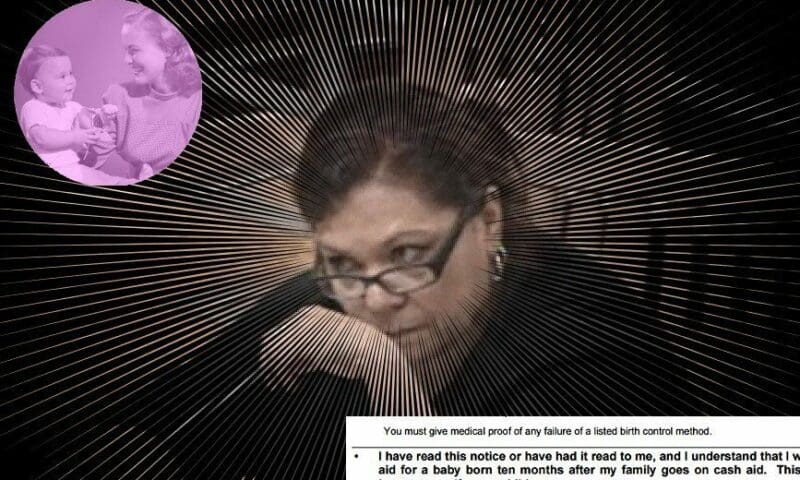

Vivian Thorp was 28 years old when she ripped a ligament in her knee lifting heavy freight at Walmart in Vallejo, California. Until then, she’d liked her job and was good at it. “I was always strong and agile, and I had the skills for a physical job,” she says. “I helped set up that store.” But when the injury laid her up, she found herself adrift in the job market. “I wasn’t skilled for anything else other than waitressing or shipping and receiving,” she says. “I got really deeply depressed.”
Her life began to unravel. A bank repossessed the rental she was living in. The father of her baby daughter Jasmine, born in 1994, left Thorp and returned to England. In 1997, four years after the accident, Walmart finally paid her $20,000 for medical expenses and lost income, but more than half of it went to pay back workers’ compensation.
» Read more about: California's Worst Law — And What's Behind the Repeal Movement »


 We hear so much about “big government” burdening “job creators” with excessive “red tape” and “bureaucracy,” but that rhetoric isn’t new. Even in the decades after the New Deal, when workers had more power than they do today, and the government was seen as society’s protector, private profit too often conflicted with the public interest.
We hear so much about “big government” burdening “job creators” with excessive “red tape” and “bureaucracy,” but that rhetoric isn’t new. Even in the decades after the New Deal, when workers had more power than they do today, and the government was seen as society’s protector, private profit too often conflicted with the public interest.
Take the sleeping drug thalidomide, which caused thousands of infant deaths and birth deformities across Europe in the early 1960s. Before being linked to those defects, the drug reached the desk of Dr. Frances Oldham Kelsey, a medical officer at the U.S. Food and Drug Administration. Dr. Kelsey saw something odd in the drug trials performed by the pharmaceutical company that manufactured thalidomide, and requested more tests. The company, with profits at stake, bullied her to approve the drug, even threatening a lawsuit.
Meanwhile, evidence from Europe began to pour in that thalidomide was toxic if taken during pregnancy.
» Read more about: How Dr. Frances Kelsey's 'Red Tape' Saved Thousands of Infants »
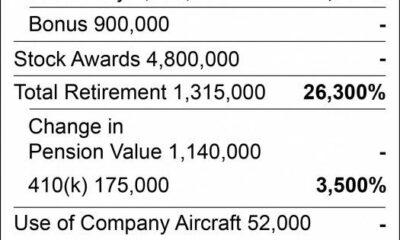
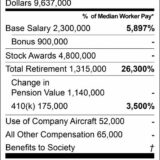
 You might not think that one additional figure in the thick of annual financial reports would be a serious threat to our major corporations, but you’d be underestimating big business lobbyists’ penchant for hysteria. A simple rule finally passed by the Securities and Exchange Commission (SEC) last week drew more than a quarter million comments and 1,500 letters to the commission – add a large stack of articles and op-eds, and one can imagine quite a number of people with steam shooting out of their ears.
You might not think that one additional figure in the thick of annual financial reports would be a serious threat to our major corporations, but you’d be underestimating big business lobbyists’ penchant for hysteria. A simple rule finally passed by the Securities and Exchange Commission (SEC) last week drew more than a quarter million comments and 1,500 letters to the commission – add a large stack of articles and op-eds, and one can imagine quite a number of people with steam shooting out of their ears.
In a 3-2 vote August 5, the SEC adopted a new rule requiring that companies disclose a comparison of CEO pay with worker pay. This disclosure rule was a mandate of the Dodd-Frank Act, the 2010 legislation passed in the wake of the recession, and will take effect in 2017. Labor groups and others concerned with economic inequality had pushed hard for the SEC to move forward on it.
» Read more about: Explosive Information: Worker Pay Disclosure Ignites Fear in Biz Lobby »
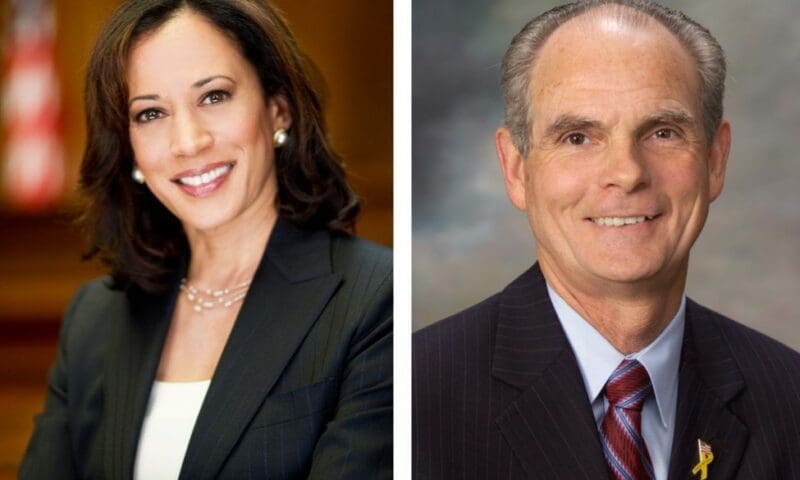

On Tuesday California Attorney General Kamala D. Harris released the full title and summary text for the Public Employees Pension and Retiree Healthcare Benefits Initiative Constitutional Amendment. The title is a mouthful, but the initiative’s wording is just six sentences long.
Its first two lines read: “Eliminates constitutional protections for vested pension and retiree healthcare benefits for current public employees, including those working in K-12 schools, higher education, hospitals and police protection, for future work performed. Adds initiative/referendum powers to Constitution, for determining public employee compensation and retirement benefits.”
Crucially, Harris omits mention of “empowering” voters — a main selling point that had been advertised by former San Jose mayor Chuck Reed, former San Diego City Councilman and Tea Party member Carl DeMaio, and four others. In June this group submitted their proposed ballot initiative to Harris as the Voter Empowerment Act of 2016. Harris’ new title weakens their cause,


The nation’s largest county government is poised to move forward Tuesday with a plan that critics say could roll back innovative public health programs and compromise everything from infectious disease containment to the prevention of smoking, obesity and sexually transmitted diseases.
On August 11, the Los Angeles County Board of Supervisors will vote on a proposed consolidation of three health agencies — the Department of Health Services (DHS), the Department of Public Health (DPH) and the Department of Mental Health (DMH). The plan has the backing of liberal supervisors Mark Ridley-Thomas and Sheila Kuehl, as well as their conservative colleague Mike Antonovich — all of whom argue that it will improve care but are opposed by an array of public health and mental health advocates.
“This consolidation has the potential to cripple public health,” said a high-ranking official with DPH, who spoke on the condition of anonymity.


This week, the American Correctional Association (ACA) will hold its annual conference in Indianapolis, where thousands of government corrections officials, including wardens, jail administrators and sheriffs, will attend workshops and connect with their peers from across the country. Workshops include best practices for successful reentry programs for released inmates and working in corrections across generations.
But many workshops and events will feature a Who’s Who of private corrections companies, including Corrections Corporation of America (CCA), GEO Group, Aramark, Corizon and Telmate.
Those companies should be familiar—many have been prominent in reports we’ve released over the past few years detailing the suffering of inmates in private hands, such as thousands of medical malpractice claims and stories about maggots appearing in prison food.
On the eve of the ACA conference, we have released a new report revealing how such conferences allow corrections companies to influence government officials in ways outside the public’s oversight.
» Read more about: Politically Correctional: How Businesses Game Prison Conferences »


 On Tuesday, California Attorney General Kamala Harris will release the official title and summary that will appear on the 2016 ballot for former San Jose mayor Chuck Reed’s latest statewide public-sector pension cutting initiative.
On Tuesday, California Attorney General Kamala Harris will release the official title and summary that will appear on the 2016 ballot for former San Jose mayor Chuck Reed’s latest statewide public-sector pension cutting initiative.
That language will finally end speculation on how far Harris will go in describing the sweeping scope of the proposed constitutional amendment. Legal analysts have charged that it contains a hidden trigger aimed at not just slashing pension benefits but annihilating 60 years of state pension law along with the vast retirement systems that together guarantee the retirement promises made to California’s public employees.
Initial clues as to what might appear on the 2016 ballot emerged last week as the first formal responses by state officials to the proposed measure began to trickle in.
The stakes for all Californians in the so-called “Voter Empowerment Act of 2016” couldn’t be higher.
» Read more about: Countdown to Disaster: Grim Official Estimates on 2016 Pension Cutting Measure »
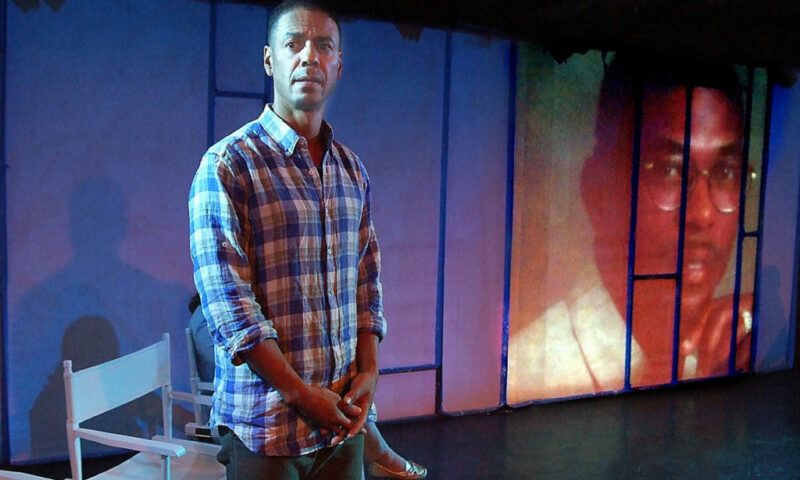

One could make the argument that Citizen: An American Lyric, Stephen Sach’s adaptation of Claudia Rankine’s celebrated meditation on race in America currently playing at the Fountain Theatre, could not be better timed. After all, at the same time America unites in its outrage over a lion murdered in Africa, the country is engaged in a hotly divided debate over a string of incidents where police have gunned down African Americans in the concrete jungles here at home. But such a supposition would be missing one of the most important points of Rankine’s work (the book was a finalist for a National Book Award). Because, to believe that somehow that there is some unusual collision of time and circumstance that has engendered the recent slew of acts of racism is to deny the fact that these incidents happen and have been happening—whether by switch, or rope,
» Read more about: Micro-aggressions and Larger Lessons: Citizen at the Fountain Theatre »


 Billed as the area’s first 100 percent solar-powered festival, EastSide Sol heated up Mariachi Plaza in Boyle Heights on Saturday. Under the scorching sun, activists, residents and community leaders gathered to explore how low-income and minority communities like theirs can be part of the growing green economy.
Billed as the area’s first 100 percent solar-powered festival, EastSide Sol heated up Mariachi Plaza in Boyle Heights on Saturday. Under the scorching sun, activists, residents and community leaders gathered to explore how low-income and minority communities like theirs can be part of the growing green economy.
On the surface, EastSide Sol was a festive celebration. The crowd danced to funky live music by pan-Latin band Buyepongo, ate taquitos and pupusas provided by neighborhood restaurant Un Solo Sol and enjoyed live mural painting by Self-Help Graphics. But at the event’s core was a conversation about economics and the environment, and how to deal with the increasing realities of climate change.
In City Council Member Jose Huizar’s opening remarks to the crowd, he said “Oftentimes in the environmental movement, when we’re looking to preserve our planet, our earth and find alternative forms of energy, the Eastside is left out of the discussion.” The need to include low-income and minority areas in environmental efforts was an ongoing theme of the day.
» Read more about: Solar-Powered Festival Heats Up Boyle Heights »
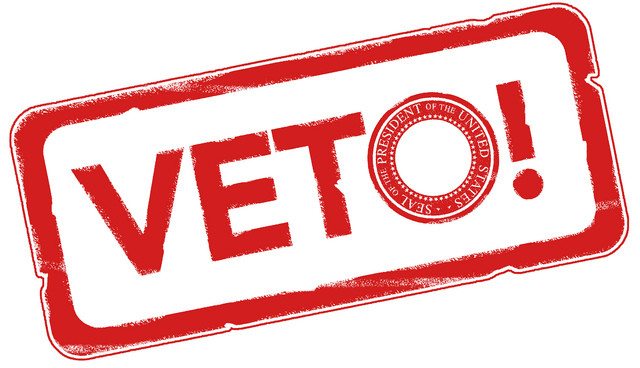

I’ve always believed that democracy was the best form of government because people can change it. And like a lot of us, I was taught that the American form of democracy was the model that should be imitated by nations across the planet. Especially ingenious was the system of “checks and balances.” This arrangement means that no one branch of government can singularly decide a political course without the consent of the others.
This much-praised system was adopted to prevent the re-emergence of an autocracy. But checks and balances also worked to keep the practice of slavery alive up until the Civil War. And in the wake of abolition, when corporations became the dominant form of business organization, the same systems were used to exploit the labor force. Even as the country’s wealth grew, the gap between rich and poor widened. It took more than half a century of effort and the devastation of the Great Depression before important reforms like a minimum wage,
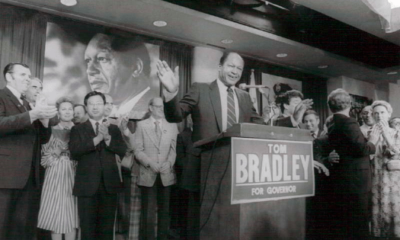

 Any informed discussion about the politics and history of Los Angeles over the last century would have to include a critical assessment of the life and legacy of Tom Bradley. In the new documentary Bridging the Divide: Tom Bradley and The Politics of Race, filmmakers Lyn Goldfarb and Alison Sotomayor provide an in-depth look into Bradley’s life and career and their lasting impact on the city’s history, culture and political life. The two recently spoke with Capital & Main. [divider]
Any informed discussion about the politics and history of Los Angeles over the last century would have to include a critical assessment of the life and legacy of Tom Bradley. In the new documentary Bridging the Divide: Tom Bradley and The Politics of Race, filmmakers Lyn Goldfarb and Alison Sotomayor provide an in-depth look into Bradley’s life and career and their lasting impact on the city’s history, culture and political life. The two recently spoke with Capital & Main. [divider]
Capital & Main: What were your main reasons for doing this documentary?
Goldfarb: Because many of us don’t have a clear understanding about the history of Los Angeles. I think Tom Bradley’s story helps us understand LA better, who we are, and how we got to where we are.
 Sotomayor: When Tom Bradley became the first African American mayor elected in a major U.S.
Sotomayor: When Tom Bradley became the first African American mayor elected in a major U.S.
» Read more about: Bridging the Divide: New Documentary Explores Former L.A. Mayor Tom Bradley »
 I don’t know about you, but I love public parks. City parks for hiking, little league, and summer concerts. State parks for camping. National parks like the Grand Canyon to experience the awe of nature. Parks are some of our most precious public assets.
I don’t know about you, but I love public parks. City parks for hiking, little league, and summer concerts. State parks for camping. National parks like the Grand Canyon to experience the awe of nature. Parks are some of our most precious public assets.
But only if they remain public. This week, candidates in Kentucky’s gubernatorial election suggested that the state could privatize parks to raise revenue. That’s a misguided solution to the wrong problem: the state’s failure to invest enough in essential public assets. Advocates of privatization say the private sector will attract more tourists. But that would jeopardize the central mission of public parks to provide affordable access to nature and recreation. Parks managed by companies, like other private assets, will need to generate profit—funds that should be spent on maintaining and improving them.
The citizens of Kentucky aren’t alone. To manage the 14 million acres of state park lands in the U.S.,